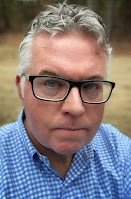 |
| Sharon Burton |
Burton will receive the award Sept. 29 in Lexington, at the annual Al Smith Awards Dinner of the University of Kentucky’s Institute for Rural Journalism and Community Issues and the Bluegrass Chapter of the Society of Professional Journalists, which co-sponsor the award.
For more than 27 years, Burton has published The Farmer’s Pride, a newspaper for Kentucky farmers and other agriculture interests. For more than 14 years, she has published the Adair County Community Voice, a weekly paper that has frequently been cited on the Institute’s Rural Blog as an example of journalism that serves the public.
“Sharon is a great example of a local individual who saw a need, and through entrepreneurial hard work, created publications that serve the need of her local community but also of the agricultural community of Kentucky,” wrote Jimmy Henning, associate dean for extension in the UK College of Agriculture, Food and Environment and director of the Kentucky Cooperative Extension Service, in his nomination.
Nick Roy, the Adair County extension agent for agriculture, also nominated Burton, saying the Community Voice “was quickly recognized as a credible source of information with coverage providing openness and transparency of local government” after its founding as a monthly in 2002. “Its popularity grew and soon became a bi-monthly publication in 2005, and then a weekly newspaper in May 2007. While the Community Voice has grown and made minor changes through its development, its commitment to the betterment of the Adair County community has remained.”
One recent example was her coverage of the March referendum in Adair County that legalized the sale of alcoholic beverages, one of the most controversial issues that a rural community can address. The Community Voice covered it thoroughly, offering insightful commentary without taking sides, including a front-page essay by Burton that began with reliving her experience of buying liquor from a bootlegger on her senior prom night and went on to the current experiences of students at the local, Methodist-sponsored college and federal survey data on local drinkers. She wrote that the county has "already said yes to alcohol. But we've said yes in a way where we don’t have to take responsibility. We allow alcohol to be sold in the shadows, treating it like a heroin den; people can get their fix, but we don’t have to look at it.”
The year before, Burton played an unusual – and probably for most journalists, controversial – role in her community by serving on the board of the local hospital, which had been driven into bankruptcy by mismanagement. When the new county judge-executive asked her to serve, she had many reservations because journalists are supposed to cover news, not make it. But she agreed "because I could not think of anything more important to do as someone who loves this community and the people who made it great," she wrote, adding that she felt she could make sure the board was more transparent than it had been. She recused herself from reporting or editing any hospital stories, and had an outside professional edit them for publication.
“Sharon’s deep commitment to public service drove her to make a decision that most academically trained journalists like her wouldn’t make,” said Al Cross, director of the Institute for Rural Journalism and associate professor in the UK School of Journalism and Media, where he teaches community journalism. “Public service ought to be the primary thing that drives journalists, and there are times when your role as a member of the community can conflict with your role as a journalist. Sharon did an exemplary job of managing those conflicts, which is a key to success in community journalism.”
The Al Smith Award is named for Albert P. Smith Jr., who published newspapers in rural Kentucky and Tennessee, was founding producer and host of KET’s “Comment on Kentucky,” and federal co-chair of the Appalachian Regional Commission. He was the driving force for creation of the Institute, headed its national advisory board for many years and remains active as chairman emeritus. (Read more)

























